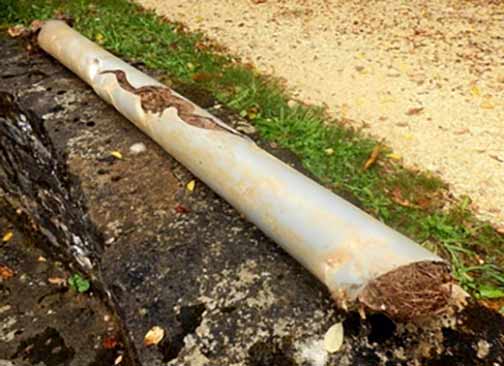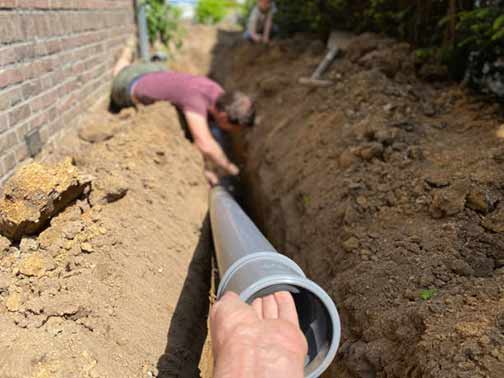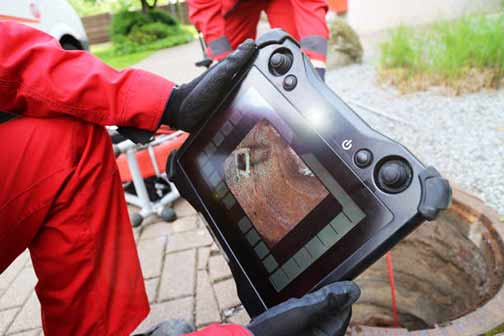
Sewer blockages are a common yet troublesome issue that can disrupt the smooth functioning of your plumbing system. Understanding the causes and prevention strategies is crucial for maintaining a clear and efficient sewer system. Here we get into the various causes of sewer blockages and provides practical tips to prevent them, ensuring your plumbing system remains in optimal condition.
Common Causes of Sewer Blockages
Sewer blockages can be caused by a variety of factors, each contributing to the obstruction of wastewater flow. Identifying these causes can help you take preventive measures to avoid costly repairs and potential health hazards.
Debris and Foreign Objects: A Major Cause of Sewer Blockages
One of the primary causes of sewer blockages is the accumulation of debris and foreign objects. Items such as paper towels, sanitary products, and baby wipes are not designed to be flushed down the toilet. When these items enter the sewer system, they can create blockages that impede the flow of wastewater.
Additionally, kitchen waste like grease and food particles can solidify and cause clogs in the pipes. These items can accumulate over time, leading to significant blockages that can result in severe plumbing issues and costly repairs.
Tree Roots Infiltration: How Nature Can Disrupt Your Sewer System
Tree roots are another common cause of sewer blockages. As trees grow, their roots can extend into sewer lines in search of water and nutrients. These roots can penetrate small cracks in the pipes and eventually cause significant blockages. The presence of tree roots in the sewer system can lead to slow drainage, backups, and even pipe damage. Tree roots can be particularly problematic because they can continually grow and expand within the pipes, exacerbating the blockage over time and potentially causing pipe ruptures.

Structural Issues: The Hidden Culprits Behind Sewer Blockages
Structural issues within the sewer system can also contribute to blockages. Over time, pipes can deteriorate due to age, corrosion, or ground movement. Cracks, misalignments, and collapses in the pipes can obstruct the flow of wastewater and lead to blockages. Regular maintenance and inspections are essential to identify and address these structural issues before they become major problems. Structural issues can be particularly challenging to detect without professional inspections, making regular check-ups crucial for maintaining a healthy sewer system.
Grease and Fat Accumulation: The Silent Blockage Builders
Grease and fat are common culprits of sewer blockages, particularly in kitchen drains. When grease and fat are washed down the sink, they can solidify and adhere to the inner walls of the pipes. Over time, this buildup can restrict the flow of wastewater and cause blockages. It is important to properly dispose of grease and fat to prevent these issues. Pouring hot water down the drain can temporarily clear minor grease buildups, but regular and proper disposal methods are necessary to prevent long-term issues.
Preventing Sewer Blockages: Effective Strategies for a Clear System
Preventing sewer blockages requires a combination of good practices and regular maintenance. By following these strategies, you can minimize the risk of blockages and keep your plumbing system running smoothly.
Proper Disposal of Waste: Key to Preventing Sewer Blockages
One of the most effective ways to prevent sewer blockages is to properly dispose of waste. Avoid flushing non-biodegradable items such as paper towels, sanitary products, and baby wipes down the toilet. Instead, dispose of these items in the trash. Additionally, avoid pouring grease and fat down the sink. Instead, collect them in a container and dispose of them in the trash once they have solidified. Educating household members about proper waste disposal can significantly reduce the risk of sewer blockages.

Regular Maintenance and Inspections: Proactive Measures to Avoid Sewer Blockages
Regular maintenance and inspections are crucial for identifying potential issues before they become major problems. Schedule routine camera inspections of your sewer line to check for signs of blockages, leaks, or structural damage. Professional plumbers can use specialized equipment to inspect the pipes and recommend necessary repairs or maintenance. Investing in regular maintenance can save you money in the long run by preventing costly emergency repairs and extending the lifespan of your plumbing system.
Tree Root Management: Preventing Natural Intrusions into Sewer Lines
If you have trees on your property, it is important to manage their roots to prevent them from infiltrating the sewer system. Regularly inspect the area around your sewer lines for signs of root intrusion. If you notice any issues of tree roots growing into your sewer line, consider contacting a hydro jetting service to address the problem. In some cases, root barriers can be installed to prevent roots from reaching the sewer lines. Proactively managing tree roots can prevent significant damage to your sewer system and avoid costly repairs.
Use of Enzyme Cleaners: A Natural Solution to Prevent Sewer Blockages
Enzyme cleaners are a helpful tool in preventing sewer blockages. These cleaners contain natural enzymes that break down organic matter, such as grease and food particles, in the pipes. Regular use of enzyme cleaners can help keep your pipes clear and reduce the risk of blockages. Enzyme cleaners are environmentally friendly and can be used as part of a regular maintenance routine to maintain a healthy plumbing system.
Installing Drain Screens: Simple Devices to Keep Debris Out
Drain screens are simple yet effective devices that can prevent debris from entering your plumbing system. Install drain screens in your sinks, showers, and tubs to catch hair, food particles, and other debris before they can enter the pipes. Regularly clean the drain screens to ensure they remain effective. Using drain screens is a cost-effective and easy way to prevent blockages and maintain the efficiency of your plumbing system.
Conclusion: Ensuring a Clear and Efficient Sewer System
Understanding the causes and prevention strategies for sewer blockages is essential for maintaining a clear and efficient plumbing system. By properly disposing of waste, conducting regular maintenance and inspections, managing tree roots, using enzyme cleaners, and installing drain screens, you can minimize the risk of blockages and ensure the smooth operation of your sewer system. Taking these proactive measures will not only save you money on repairs but also contribute to a healthier and more hygienic living environment. A well-maintained sewer system is crucial for the overall well-being of your home, providing peace of mind and preventing potential health hazards.

